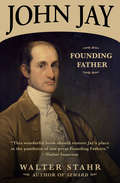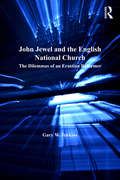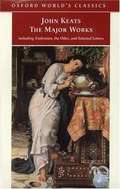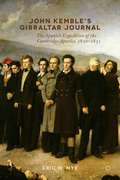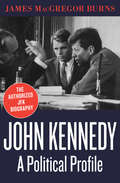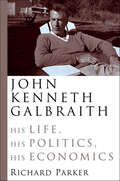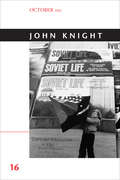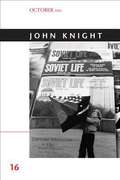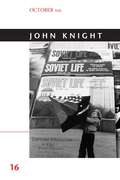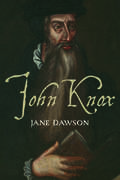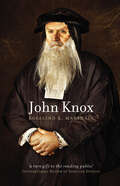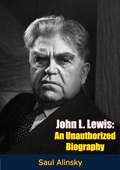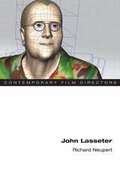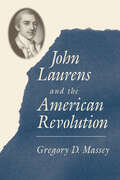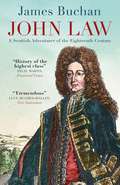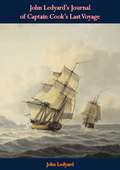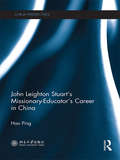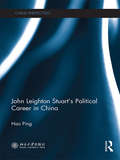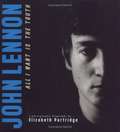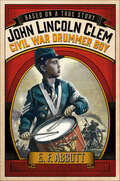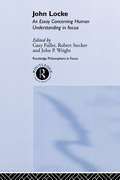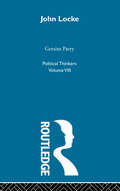- Table View
- List View
John Jay: Founding Father
by Walter StahrFrom the award-winning and New York Times best-selling author of Seward and Stanton, here is the critically acclaimed and definitive biography of John Jay: a major Founding Father, a true national hero, and a leading architect of America's future. John Jay was a central figure in the early history of the American Republic. A New York lawyer, born in 1745, Jay served his country with the greatest distinction, and was one of the most influential of its Founding Fathers. In this first full-length biography of John Jay in almost 70 years, Walter Stahr brings Jay vividly to life, setting his astonishing career against the background of the American Revolution. Drawing on substantial new material, Walter Stahr has written a full and highly readable portrait of both the public and private man. It is the story not only of John Jay himself, the most prominent native-born New Yorker of the eighteenth century, but also of his engaging and intelligent wife, Sarah, who accompanied her husband on his wartime diplomatic missions. This lively and compelling biography presents Jay in the light he deserves.“Walter Stahr’s even-handed account, the first big biography of Jay in decades, is riveting on the matter of negotiating tactics, as practiced by Adams, Jay and Franklin.” — The Economist“Walter Stahr writes with great insight, and this wonderful book should restore Jay’s place in the pantheon of our great Founding Fathers.” —Walter Isaacson, author of Benjamin Franklin: An American Life and Steve Jobs“Stahr’s Jay is a welcome and worthy biography.” — The Sunday Times (London)“Walter Stahr, an independent scholar, has written a fascinating, learned and beautifully written biography of a major figure of the American Revolution, one who has been too long overlooked. Mr. Stahr deserves consideration for the Pulitzer Prize for biography.” — Washington Times“Mr. Stahr is a superlative biographer, reporting the criticisms made of his subject and then showing why, in most cases, Jay knew better than his contemporary critics or later historians.” — New York Sun“Until Walter Stahr’s splendid new biography appeared, the most recent biography of Jay was Frank Monaghan’s John Jay: Defender of Liberty against Kings and Peoples (1935), published some seven decades ago.” — Journal of American History“Walter Stahr’s excellent new biography should re-establish Jay’s standing as one of America’s great statesmen. It portrays Jay’s life with a balance and command of the material worthy of the subject.” — Weekly Standard“Stahr . . . captures both his subject’s seriousness and his thoughtful, affectionate side as son, husband, father and friend. In humanizing Jay, Stahr makes him an appealing figure accessible to a large readership and places Jay once again in the company of America’s greatest statesmen, where he unquestionably belongs.” — Publishers Weekly“Stahr has succeeded splendidly in his aim of recovering the reputation of John Jay as a major founder. His biography is a reliable and clearly written account [and] makes a persuasive case for including Jay among the first rank of Revolutionary leaders.” — Gordon S. Wood in The New York Review of Books“Walter Stahr has not only given us a meticulous study of the life of John Jay, but one very much written in the spirit of the man. It is thorough, fair, consistently intelligent, and presented with the most scrupulous accuracy.” — Ron Chernow, author of Alexander Hamilton
John Jewel and the English National Church: The Dilemmas of an Erastian Reformer (St Andrews Studies In Reformation History Ser.)
by Gary W. JenkinsJohn Jewel (1522-1571) has long been regarded as one of the key figures in the shaping of the Anglican Church. A Marian exile, he returned to England upon the accession of Elizabeth I, and was appointed bishop of Salisbury in 1560 and wrote his famous Apologia Ecclesiae Anglicanae two years later. The most recent monographs on Jewel, now over forty years old, focus largely on his theology, casting him as deft scholar, adept humanist, precursor to Hooker, arbiter of Anglican identity and seminal mind in the formation of Anglicanism. Yet in light of modern research it is clear that much of this does not stand up to closer examination. In this work, Gary Jenkins argues that, far from serving as the constructor of a positive Anglican identity, Jewel's real contribution pertains to the genesis of its divided and schizophrenic nature. Drawing on a variety of sources and scholarship, he paints a picture not of a theologian and humanist, but an orator and rhetorician, who persistently breached the rules of logic and the canons of Renaissance humanism in an effort to claim polemical victory over his traditionalist opponents such as Thomas Harding. By taking such an iconoclastic approach to Jewel, this work not only offers a radical reinterpretation of the man, but of the Church he did so much to shape. It provides a vivid insight into the intent and ends of Jewel with respect to what he saw the Church of England under the Elizabethan settlement to be, as well as into the unintended consequences of his work. In so doing, it demonstrates how he used his Patristic sources, often uncritically and faultily, as foils against his theological interlocutors, and without the least intention of creating a coherent theological system.
John Keats
by John Keats Elizabeth CookThis authoritative edition was originally published in the acclaimed Oxford Authors series under the general editorship of Frank Kermode. It brings together a unique combination of Keats's poetry and prose - all the major poems, complemented by a generous selection of Keats's letters - togive the essence of his work and thinking. In his tragically short life Keats wrote an astonishing number of superb poems; his stature as one of the foremost poets of the Romantic movement remains unassailable. This volume contains all the poetry published during his lifetime, including Endymion in its entirety, the Odes, 'Lamia', and bothversions of 'Hyperion'. The poetry is presented in chronological sequence, illustrating the staggering speed with which Keats's work matured. Further insight into his creative process is given by reproducing, in their original form, a number of poems that were published posthumously. Keats's letters are admired almost as much as his poetry and were described by T. S. Eliot as 'certainly the most notable and most important ever written by any English poet'. They provide the best biographical detail available and shed invaluable light on Keats's poems.
John Kemble’s Gibraltar Journal
by Eric W. NyeThe summer of 1830 stirred revolutionary desires in young hearts across Europe. More than a generation of war and political instability had failed to dampen the fervor still felt from the French Revolution. In England the Cambridge Apostles took up the cause of the Spanish emigres so movingly visible in London where they had sought refuge from the tyranny of Ferdinand VII and his suppression of constitutional rights. The Spanish Expedition of the Cambridge Apostles has always captured our imaginations. Its blend of idealism and daring, of theory and practice, of thought and energy, seems perfectly to fulfill the principles the Apostles steadfastly espoused, a combination of faith and works. The episodes comprised in most accounts of the expedition are symbolic and filled with intrigue: secret meetings, assumed names, hidden messages, contraband, narrow escapes from the authorities, treachery, and finally a bloody execution on the beach at Malaga. A host of newly-discovered documents now enable us to re-examine one of the most intriguing events in British intellectual history. "
John Kennedy: A Political Profile
by James Macgregor BurnsThe authorized biography of John F. Kennedy offers a fresh and candid look at what shaped the man America came to love and admire, just as he was on the cusp of the presidency Historian, political scientist, and Pulitzer Prize-winning author James MacGregor Burns wrote Roosevelt: The Lion and the Fox, the first volume of his highly acclaimed biography of FDR, in 1956. Two years later, Burns ran for a seat in Congress and became close friends with John F. Kennedy, who was also campaigning throughout the state for reelection to the Senate. After Burns lost his election, he decided to write a biography of JFK. Without any restrictions, Kennedy granted his friend complete access to files, family records, and personal correspondence. The two men spoke at great length in Washington, DC, and at the Kennedy family compound on Cape Cod, and afterwards, Kennedy asked his relatives, friends, and political colleagues to talk openly with Burns as well. The result is a frank, incisive, and compelling portrait of Kennedy from his youth to his service in World War II and his time in Congress. While many political biographies--especially those of presidential candidates--intend to depict a certain persona, Burns would not allow anything other than his own perception to influence him. And so, John Kennedy concludes questioning whether JFK would make "a commitment not only of mind, but of heart" to the great challenges that lay ahead. (Burns would later admit that his subject did bring both bravery and wisdom to his presidency.) First published just as Kennedy was coming into the national spotlight, this biography gives a straightforward and exciting portrayal of one of the twentieth century's most important figures.
John Kenneth Galbraith: His Life, His Politics, His Economics
by Richard ParkerThe life and times of America's celebrated economist, assessing his lessons-and warnings-for us today.John Kenneth Galbraith's books—among them The Affluent Society and American Capitalism—are famous for good reason. Written by a scholar renowned for energetic political engagement and irrepressible wit, they are models of provocative good sense that warn prophetically of the dangers of deregulated markets, war in Asia, corporate greed, and stock-market bubbles. Galbraith's work has also deeply-and controversially-influenced his own profession, and in Richard Parker's hands his biography becomes a vital reinterpretation of American economics and public policy.Born and raised on a small Canadian farm, Galbraith began teaching at Harvard during the Depression. He was FDR's "price czar" during the war and then a senior editor of Fortune before returning to Harvard and to fame as a bestselling writer. Parker shows how, from his early championing of Keynes to his acerbic analysis of America's "private wealth and public squalor," Galbraith regularly challenged prevailing theories and policies. And his account of Galbraith's remarkable friendship with John F. Kennedy, whom he served as a close advisor while ambassador to India, is especially relevant for its analysis of the intense, dynamic debates that economists and politicians can have over how America should manage its wealth and power. This masterful chronicle gives color, depth, and meaning to the record of an extraordinary life.
John Knight (October Files #16)
by André RottmannEssays and interviews discuss the art of John Knight, a pioneering figure in site-specific art and institutional critique.For more than four decades, the elusive but influential Los Angeles-based artist John Knight has developed a practice of site specificity that tests both architectural and ideological boundaries of the museum, gallery, and public sphere. Knight's works defy notions of stylistic coherence, even, at times, of instant recognizability. Grounded in a sustained method of inhabiting the material, discursive and economic conditions of varied sites, his works systematically challenge notions of object, sign, context, authorship, and value, and they confront audiences not only with mailers, posters, and journals but also with carpenter levels, commemorative plates, deck chairs, bicycle bells, flower arrangements, and credit cards. This volume offers essays and interviews that trace the critical thinking on Knight, discussing the artist's trajectory from 1969 to 2011.These texts, by such prominent figures as Benjamin H. D. Buchloh, Anne Rorimer, Alexander Alberro, and Birgit Pelzer, offer close readings of Knight's pivotal projects in situ while also considering them in terms of such art-historical paradigms as the readymade, the anti-aesthetic, institutional critique, and the relationship between art and design as well as corporate culture at large. The book provides the first collection of these often hard-to-find texts on Knight and will serve as an essential guide for further consideration of his oeuvre.
John Knight
by André RottmannFor more than four decades, the elusive but influential Los Angeles-based artist John Knight has developed a practice of site specificity that tests both architectural and ideological boundaries of the museum, gallery, and public sphere. Knight's works defy notions of stylistic coherence, even, at times, of instant recognizability. Grounded in a sustained method of inhabiting the material, discursive and economic conditions of varied sites, his works systematically challenge notions of object, sign, context, authorship, and value, and they confront audiences not only with mailers, posters, and journals but also with carpenter levels, commemorative plates, deck chairs, bicycle bells, flower arrangements, and credit cards. This volume offers essays and interviews that trace the critical thinking on Knight, discussing the artist's trajectory from 1969 to 2011. These texts, by such prominent figures as Benjamin H. D. Buchloh, Anne Rorimer, Alexander Alberro, and Birgit Pelzer, offer close readings of Knight's pivotal projects in situ while also considering them in terms of such art-historical paradigms as the readymade, the anti-aesthetic, institutional critique, and the relationship between art and design as well as corporate culture at large. The book provides the first collection of these often hard-to-find texts on Knight and will serve as an essential guide for further consideration of his oeuvre.
John Knight
by André RottmannFor more than four decades, the elusive but influential Los Angeles-based artist John Knight has developed a practice of site specificity that tests both architectural and ideological boundaries of the museum, gallery, and public sphere. Knight's works defy notions of stylistic coherence, even, at times, of instant recognizability. Grounded in a sustained method of inhabiting the material, discursive and economic conditions of varied sites, his works systematically challenge notions of object, sign, context, authorship, and value, and they confront audiences not only with mailers, posters, and journals but also with carpenter levels, commemorative plates, deck chairs, bicycle bells, flower arrangements, and credit cards. This volume offers essays and interviews that trace the critical thinking on Knight, discussing the artist's trajectory from 1969 to 2011. These texts, by such prominent figures as Benjamin H. D. Buchloh, Anne Rorimer, Alexander Alberro, and Birgit Pelzer, offer close readings of Knight's pivotal projects in situ while also considering them in terms of such art-historical paradigms as the readymade, the anti-aesthetic, institutional critique, and the relationship between art and design as well as corporate culture at large. The book provides the first collection of these often hard-to-find texts on Knight and will serve as an essential guide for further consideration of his oeuvre.
John Knox
by Jane DawsonJane Dawson has written the definitive life of John Knox, a leader of the Protestant Reformation in sixteenth-century Scotland. Based in large part on previously unavailable sources, including the recently discovered papers of Knox's close friend and colleague Christopher Goodman, Dawson's biography challenges the traditionally held stereotype of this founder of the Presbyterian denomination as a strident and misogynist religious reformer whose influence rarely extended beyond Scotland. She maintains instead that John Knox relied heavily on the support of his "godly sisters" and conferred as well as argued with Mary, Queen of Scots. He was a proud member of the European community of Reformed Churches and deeply involved in the religious Reformations within England, Ireland, France, Switzerland, and the Holy Roman Empire. Casting a surprising new light on the public and private personas of a highly complex, difficult, and hugely compelling individual, Dawson's fascinating study offers a vivid, fully rounded portrait of this renowned Scottish preacher and prophet who had a seismic impact on religion and society.
John Knox
by Rosalind K. MarshallA bestselling biography of one of the Reformations&’ central characters from the author of Mary Queen of Scots: Truth or Lies. Following John Knox&’s career in Scotland, England, France, Switzerland, and Germany, Rosalind K. Marshall explains in straightforward terms the issues and beliefs which concerned the theologian so deeply. She also focuses on his relationship with the opposite sex, discussing the notorious First Blast of the Trumpet against the Monstrous Regiment of Women, his dealings with Mary, Queen of Scots, and the patient, revealing letters he wrote his mother-in-law. This book untangles truth from mythology in the life of this strange, complex, and determined man and constructs a balanced picture of sixteenth-century Scotland that places Knox clearly within the context of change and reformation which was sweeping the whole of Europe. The result is a richer and more complex portrayal of both Scotland and Knox than any hitherto available, and the first modern paperback of one of the most famous of all Scottish figures. Praise for John Knox and the books of Rosalind K. Marshall &“A rare gift to the reading public.&” —International Review of Scottish Studies &“An admirable new biography . . . a remarkable study, illuminating both a character and an age.&” —Antonia Fraser, award-winning author of Cromwell, on Mary of Guise &“Dr Marshall . . . uses exactly the right mixture of flowing, readable narrative . . . to breathe life into the historical dust.&” —Jack Firth on Bonnie Prince Charlie
John L. Lewis: An Unauthorized Biography
by Saul AlinskyDramatically, from personal acquaintance and Lewis’s own files, Saul Alinsky writes here the inside story of one of the most powerful men in America. Its revelations of why Lewis broke with Roosevelt, of why he fought with the AF of L to form the CIO, of the birth of the sit-down strikes, of the motives behind the war strikes, of how Lewis has so often managed to stalemate the U.S. Government—these are front-page news. They are brought out with sharp insight by one of the most brilliant observers of the labor movement in this country.John L. Lewis is not only reporting of an extremely high order but one of the most stimulating biographies that have been published in many years. There is no one of us who can remain unaffected by the acts of the mine workers’ president.
John Lasseter (Contemporary Film Directors)
by Richard NeupertCelebrated as Pixar's "Chief Creative Officer," John Lasseter is a revolutionary figure in animation history and one of today's most important filmmakers. Lasseter films from Luxo Jr. to Toy Story and Cars 2 highlighted his gift for creating emotionally engaging characters. At the same time, they helped launch computer animation as a viable commercial medium and serve as blueprints for the genre's still-expanding commercial and artistic development. Richard Neupert explores Lasseter's signature aesthetic and storytelling strategies and details how he became the architect of Pixar's studio style. Neupert contends that Lasseter's accomplishments emerged from a unique blend of technical skill and artistic vision, as well as a passion for working with collaborators. In addition, Neupert traces the director's career arc from the time Lasseter joined Pixar in 1984. As Neupert shows, Lasseter's ability to keep a foot in both animation and CGI allowed him to thrive in an unconventional corporate culture that valued creative interaction between colleagues. The ideas that emerged built an animation studio that updated and refined classical Hollywood storytelling practices--and changed commercial animation forever.
John Laurens and the American Revolution
by Gregory D. MasseyAn &“excellent biography&” of General Washington&’s aide-de-camp, a daring soldier who advocated freeing slaves who served in the Continental Army (Journal of Military History). Winning a reputation for reckless bravery in a succession of major battles and sieges, John Laurens distinguished himself as one of the most zealous, self-sacrificing participants in the American Revolution. A native of South Carolina and son of Henry Laurens, president of the Continental Congress, John devoted his life to securing American independence. In this comprehensive biography, Gregory D. Massey recounts the young Laurens&’s wartime record —a riveting tale in its own right —and finds that even more remarkable than his military escapades were his revolutionary ideas concerning the rights of African Americans. Massey relates Laurens&’s desperation to fight for his country once revolution had begun. A law student in England, he joined the war effort in 1777, leaving behind his English wife and an unborn child he would never see. Massey tells of the young officer&’s devoted service as General George Washington&’s aide-de-camp, interaction with prominent military and political figures, and conspicuous military efforts at Brandywine, Germantown, Monmouth, Newport, Charleston, Savannah, and Yorktown. Massey also recounts Laurens&’s survival of four battle wounds and six months as a prisoner of war, his controversial diplomatic mission to France, and his close friendship with Alexander Hamilton. Laurens&’s death in a minor battle in August 1782 was a tragic loss for the new state and nation. Unlike other prominent southerners, Laurens believed blacks shared a similar nature with whites, and he formulated a plan to free slaves in return for their service in the Continental Army. Massey explores the personal, social, and cultural factors that prompted Laurens to diverge so radically from his peers and to raise vital questions about the role African Americans would play in the new republic. &“Insightful and balanced . . . an intriguing account, not only of the Laurens family in particular but, equally important, of the extraordinarily complex relationships generated by the colonial breach with the Mother Country.&” —North Carolina Historical Review
John Law: A Scottish Adventurer of the Eighteenth Century
by James BuchanAt the summit of his power, John Law was the most famous man in Europe. Born in Scotland in 1671, he was convicted of murder in London and, after his escape from prison, fled Scotland for the mainland when Union with England brought with it a warrant for his arrest. On the continent he lurched from one money-making scheme to the next - selling insurance against losing lottery tickets in Holland, advising the Duke of Savoy - amassing a fortune of some £80,000.But for his next trick he had grander ambitions. When Louis XIV died, leaving a thoroughly bankrupt France to his five-year-old heir, Law gained the ear of the Regent, Philippe D'Orleans. In the years that followed, Law's financial wizardry transformed the fortunes of France, enriching speculators and investors across the continent, and he was made Controller-General of Finances, effectively becoming the French Prime Minister. But the fall from grace that was to follow was every bit as spectacular as his meteoric rise.John Law, by a biographer of Adam Smith and the author of Frozen Desire and Capital of the Mind, dramatises the life of one of the most inventive financiers in history, a man who was born before his time and in whose day the word millionaire came to be coined.
John Law: A Scottish Adventurer of the Eighteenth Century
by James BuchanAt the summit of his power, John Law was the most famous man in Europe. Born in Scotland in 1671, he was convicted of murder in London and, after his escape from prison, fled Scotland for the mainland when Union with England brought with it a warrant for his arrest. On the continent he lurched from one money-making scheme to the next - selling insurance against losing lottery tickets in Holland, advising the Duke of Savoy - amassing a fortune of some £80,000.But for his next trick he had grander ambitions. When Louis XIV died, leaving a thoroughly bankrupt France to his five-year-old heir, Law gained the ear of the Regent, Philippe D'Orleans. In the years that followed, Law's financial wizardry transformed the fortunes of France, enriching speculators and investors across the continent, and he was made Controller-General of Finances, effectively becoming the French Prime Minister. But the fall from grace that was to follow was every bit as spectacular as his meteoric rise.John Law, by a biographer of Adam Smith and the author of Frozen Desire and Capital of the Mind, dramatises the life of one of the most inventive financiers in history, a man who was born before his time and in whose day the word millionaire came to be coined.
John Ledyard’s Journal of Captain Cook’s Last Voyage
by John Ledyard Helen M. Gilkey Robert M. StormTo the Pacific Ocean, and in Quest of a North-West Passage, Between Asia and America; Performed in the Years 1776, 1777, 1778, and 1779Captain John Cook’s last voyage, his third to the Pacific Northwest, was a remarkable one, for his crew included several literate men, scientists, scholars, and specialists. Anticipating a rush into print after the voyage, the British Admiralty ordered all logbooks, journals, diaries, and notes of the crew members confiscated when the fleet returned to England. It has thus been presumed that John Ledyard, the young Yankee sailor, compiled this Journal from memory or from notes which he secretly retained. Aside from its value as an independent account of the Cook voyage, it was the first writing on the Pacific Northwest to be widely distributed in America.
John Leighton Stuart's Missionary-Educator's Career in China (China Perspectives)
by Hao PingIn China, John Leighton Stuart (1876-1962) is a controversial figure occupying an important position in the history of modern China and Sino-U.S. relations. As a scholar and educator, Stuart loved Chinese culture and contributed much to the development of Chinese education. While as a missionary, he was inherently prejudiced against Marxism. As the U.S. ambassador to China, Stuart executed U.S. government's policy, and was finally stereotyped as a symbol of "American imperialism". This book is a comprehensive and systematic study of Stuart's missionary-educator's career in China. It gives a detailed account of Stuart's missionary activities and contribution to the establishment and development of Yenching University as the founding president in China. Yenching, founded in 1919, left a significant and lasting legacy to Chinese education. It also contributed much to western studies on Asian culture with the Harvard-Yenching Institute established in 1928. By collecting substantial relevant materials both at home and abroad, both published and unpublished, this book reveals the multidimensional and complex features of Stuart, getting rid of the stereotype. Academic and general readers interested in Stuart, missionary education in modern China and modern Chinese history will be attracted by this book.
John Leighton Stuart’s Political Career in China (China Perspectives)
by Hao PingIn China, John Leighton Stuart (1876-1962) is a controversial figure occupying an important position in the history of modern China and Sino-U.S. relations. As a scholar and educator, Stuart loved Chinese culture and contributed much to the development of Chinese education. While as a missionary, he was inherently prejudiced against Marxism. As the U.S. ambassador to China, Stuart executed U.S. government's policy, and was finally stereotyped as a symbol of "American imperialism". This book gives a detailed account of Stuart's complicated and deep political involvement in modern China. Stuart had close relationships with Chiang Kai-shek and other high-ranking officials of Kuomingtang (KMT), while he was also an honored guest of Mao Tse-tung and Chinese Communist Party (CCP). During his tenure as the U.S. Ambassador to China, Stuart did implement U.S. government's policy of supporting KMT. But when the CCP's gaining power became inevitable, he took a pragmatic attitude and urged the U.S. government to normalize its diplomatic relations with the Communist Government. These seemingly contradictory behaviors reveal Stuart's complex features and the changeable era. By collecting substantial relevant materials both at home and abroad, both published and unpublished, this book reveals Stuart's multidimensional characters, getting rid of the stereotype. Academic and general readers interested in Stuart, modern Chinese history and Sino-U.S. relations will be attracted by this book.
John Lennon: A Biography
by Elizabeth PartridgeAward-winning biographer Elizabeth Partridge dives into Lennon's life from the night he was born in 1940 during a World War II air raid on Liverpool, deftly taking us through his turbulent childhood and his rebellious rock 'n' roll teens to his celebrated life writing, recording, and performing music with the Beatles. She sheds light on the years after the Beatles, with Yoko Ono, as he struggled to make sense of his own artistic life - one that had turned from youthful angst to suffocating fame in almost a split second. Partridge chronicles the emotional highs and paralyzing lows that Lennon transformed into brilliant, evocative songs. John Lennon: All I Want Is the Truth is the unforgettable story of one of rock's biggest legends.
John Lennon: Young Rock Star (Easy Biographies)
by Laurence SantreyA brief biography of the English rock musician with emphasis on his early years and the formation of the famous Beatles.
John Lewis: A Life
by David GreenbergA comprehensive, authoritative biography of Civil Rights icon John Lewis, &“the conscience of the Congress,&” drawing on interviews with Lewis and approximately 275 others who knew him at various stages of his life, as well as never-before-used FBI files and documents.Born into poverty in rural Alabama, Lewis would become second only to Martin Luther King, Jr. in his contributions to the Civil Rights Movement. He was a Freedom Rider who helped to integrate bus stations in the South, a leader of the Nashville sit-in movement, the youngest speaker at the 1963 March on Washington, and the chairman of the Student Nonviolent Coordinating Committee (SNCC), which he made into one of the major civil rights organizations. He may be best remembered as the victim of a vicious beating by Alabama state troopers at the foot of the Edmund Pettus Bridge in Selma, Alabama, where he nearly died. Greenberg&’s biography traces Lewis&’s life through the post-Civil Rights years, when he headed the Voter Education Project, which enrolled millions of African American voters across the South. The book reveals the little-known story of his political ascent first locally in Atlanta, and then as a member of Congress. Tapped to be a part of the Democratic leadership in Congress, he earned respect on both sides of the aisle for the sacrifices he had made on behalf of nonviolent integration in the South and came to be known as the &“conscience of the Congress.&” Thoroughly researched and dramatically told, Greenberg&’s biography captures John Lewis&’s influential career through documents from dozens of archives, interviews with hundreds of people who knew Lewis, and long-lost footage of Lewis himself speaking to reporters from his hospital bed following his severe beating on &“Bloody Sunday&” in Selma. With new details about his personal and professional relationships, John Lewis: A Life is the definitive biography of a man whose heroism during the Civil Rights movement helped to bring America a new birth of freedom.
John Lincoln Clem: Civil War Drummer Boy (Based On A True Story Ser.)
by E. F. AbbottWould you ever run off to join the army, leaving your family behind? That's what nine-year-old John Lincoln Clem does in 1861. Determined to fight for his country, Johnny sneaks onto a train filled with men from the 3rd Ohio Union Regiment. Taken in by the older soldiers, Johnny becomes a drummer boy, and later, takes up his own musket. As the war rages on, Johnny experiences the brutalities of battle as well as the rampant illness and gnawing hunger in between. But the most dangerous part of Johnny’s journey is yet to come. Based on a True Story books are exciting historical fiction about real children who lived through extraordinary times in American History. This title has Common Core connections.
John Locke: En Essay Concerning Human Understanding in Focus
by Gary Fuller, Robert Stecker and John P. WrightJohn Locke's Essay Concerning Human Understanding is among the most important books in philosophy ever written. It is also a difficult work dealing with many themes, including the origin of ideas; the extent and limits of human knowledge; the philosophy of perception; and religion and morality. This volume is original in that it focuses on the last two of these topics and provides a clear and insightful survey of these overlooked aspects of Locke's best known work. Four eminent Locke scholars present authoritative discussions of Locke's view on the ethics of belief, personal identity, free will and moral theory. Contributors include John Passmore (Australian National University), Harold Noonan (Birmingham University), Vere Chappell (University of Massachusetts, Amherst), and Daniel Flage (James Madison University).
John Locke
by Geraint ParryFrom earliest times Locke's writings have been the subject of controversy. An intellectual caught up in the politics of late 17th century England, his writings on politics reveal a man attempting to combine an analysis of the underlying principles of society with a deep commitment to a specific political stance and party. This study, first published in 1978 explains why Locke's vision of political life has continued to fascinate political thinkers of many different persuasions.
